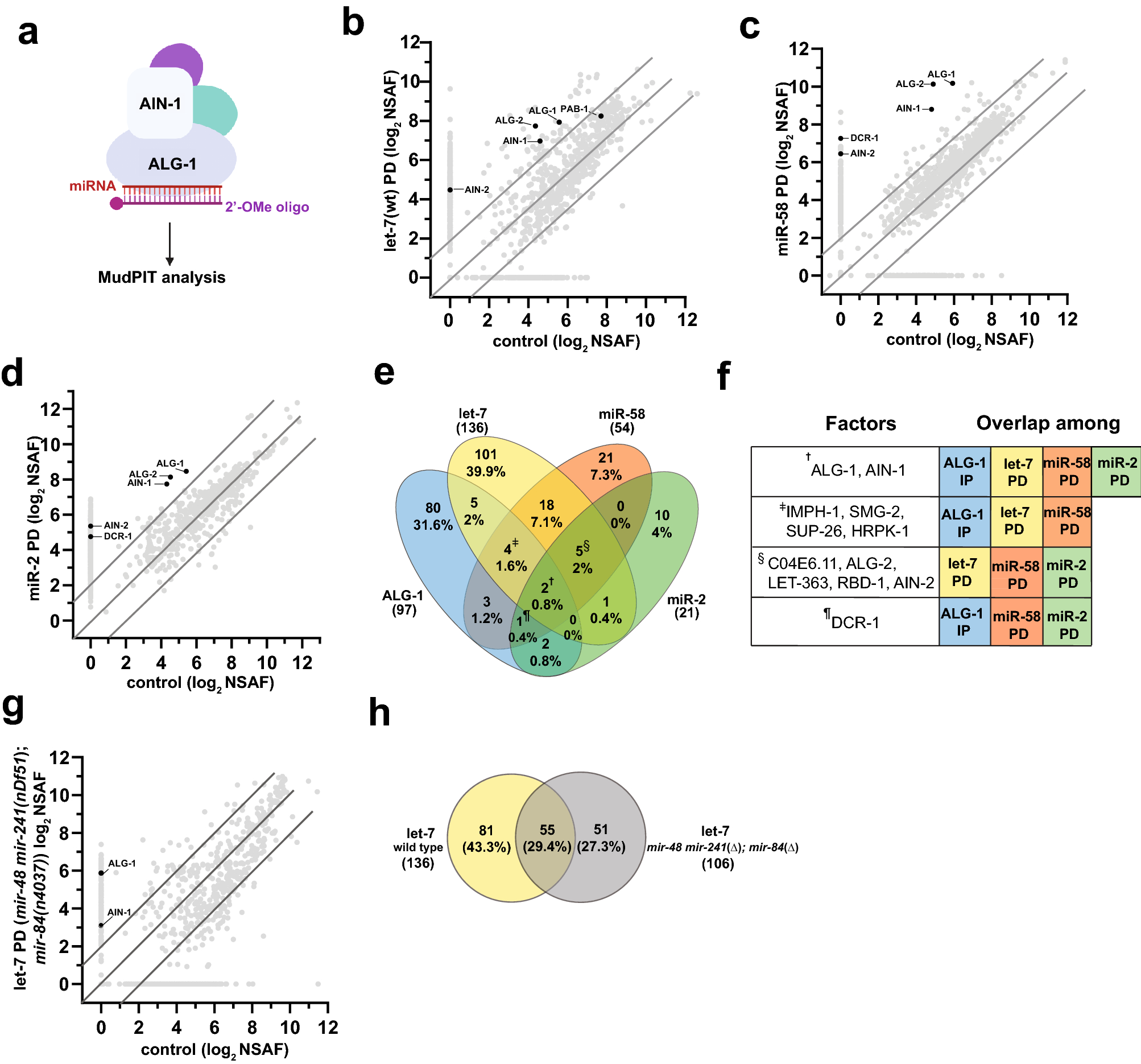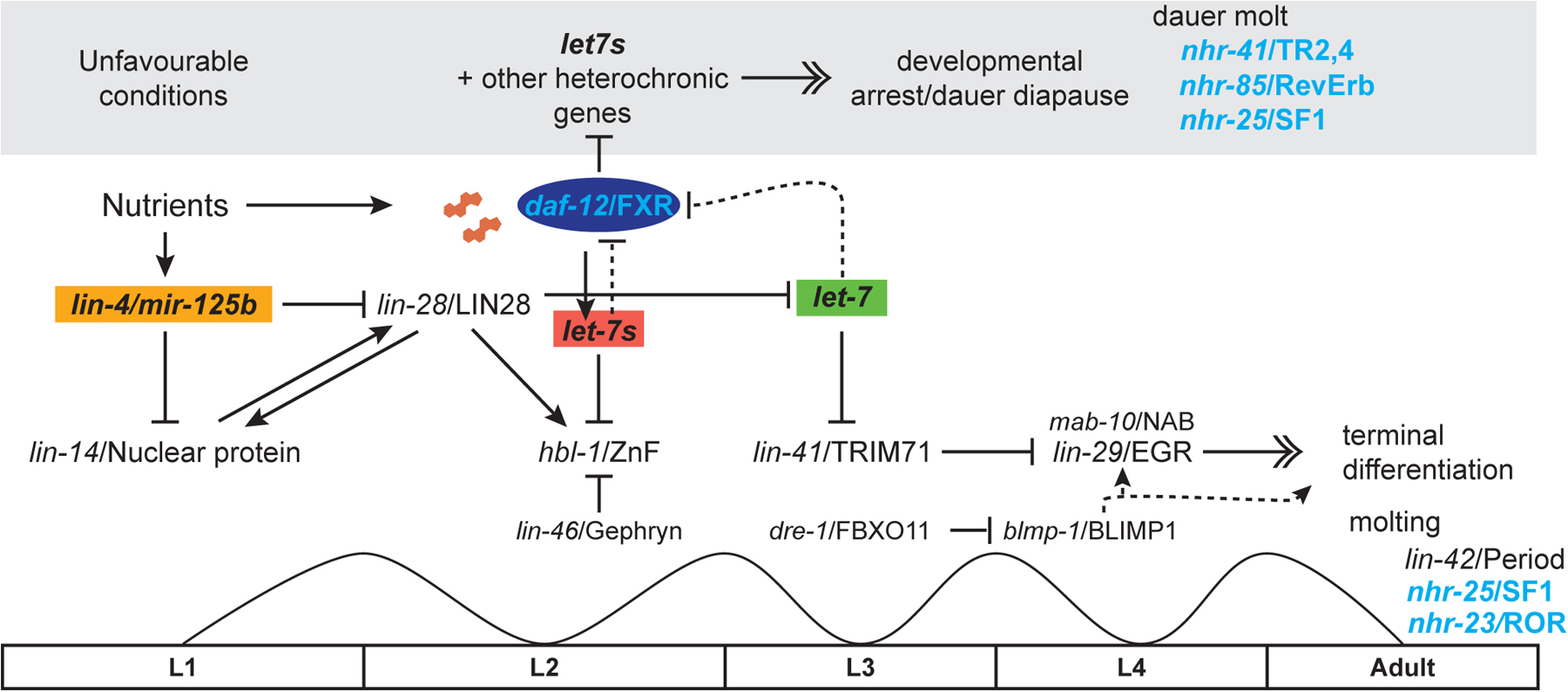LIN-42, the Caenorhabditis elegans PERIOD homolog, Negatively
Author Summary MicroRNAs play pervasive roles in controlling gene expression throughout animal development. Given that individual microRNAs are predicted to regulate hundreds of mRNAs and that most mRNA transcripts are microRNA targets, it is essential that the expression levels of microRNAs be tightly regulated. With the goal of unveiling factors that regulate the expression of microRNAs that control developmental timing, we identified lin-42, the C. elegans homolog of the human and Drosophila period gene implicated in circadian gene regulation, as a negative regulator of microRNA expression. By analyzing the transcriptional expression patterns of representative microRNAs, we found that the transcription of many microRNAs is normally highly dynamic and coupled aspects of post-embryonic growth and behavior. We suggest that lin-42 functions to modulate the transcriptional output of temporally-regulated microRNAs and mRNAs in order to maintain optimal expression of these genes throughout development.

The Doubletime Homolog KIN-20 Mainly Regulates let-7 Independently of Its Effects on the Period Homolog LIN-42 in Caenorhabditis elegans

Cristina Aguirre-Chen, PhD - Columbia University Irving Medical Center

Plenary Session 1 - 19th International C. elegans Meeting
Rfam: Family: mir-46 (RF00249)

Functional identification of microRNA-centered complexes in C. elegans

Period homolog LIN-42 regulates miRNA transcription to impact developmental timing. - Abstract - Europe PMC

ztf-16 is a novel heterochronic modulator that opposes adult cell fate in dauer and continuous life histories in Caenorhabditis elegans

The Emerging Function and Promise of tRNA-Derived Small RNAs in Cancer

Dana King, Ph.D. - Senior Bioinformatics Analyst - University of Michigan

The Period protein homolog LIN-42 regulates germline development in C. elegans - ScienceDirect

Feedback between a retinoid-related nuclear receptor and the let-7 microRNAs controls the pace and number of molting cycles in C. elegans

siRNA Leaders in Pharmaceutical Business Intelligence (LPBI) Group

Nuclear receptor signal transduction in C. elegans

Dopamine signaling promotes the xenobiotic stress response and protein homeostasis







